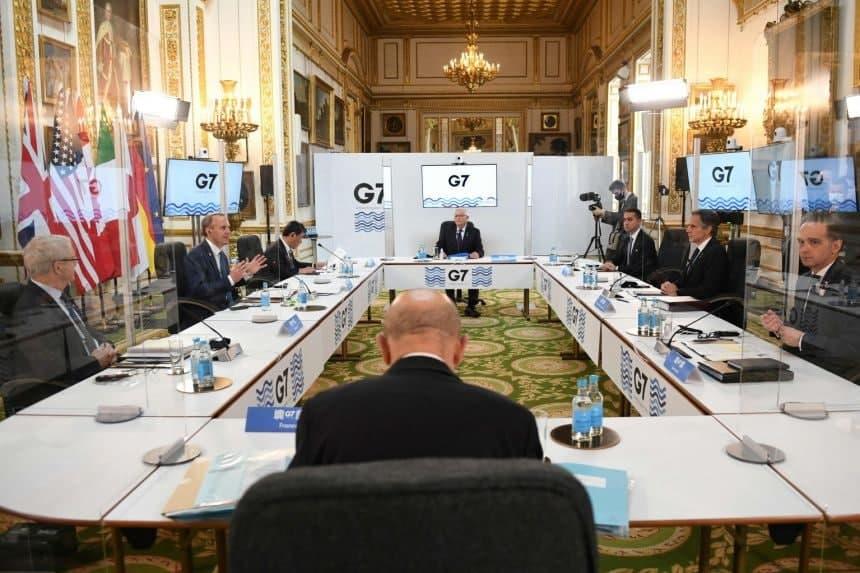LONDON, May 5 (Reuters) - The Group of Seven wealthy democracies on Tuesday (May 4) discussed how to form a common front towards an increasingly assertive China in the foreign ministers' first in-person talks in two years.
Backing US President Joe Biden's calls for a deeper alliance of democracies, host Britain invited guests including India, South Korea and Australia for parts of the talks in central London stretched out over three days.
The foreign ministers welcomed one another with COVID-friendly elbow-bumps and minimal staff as they gathered at Lancaster House, a West End mansion, for a day largely devoted to China - whose growing military and economic clout and willingness to exert its influence have increasingly unnerved Western democracies.
"It is not our purpose to try to contain China or to hold China down," said US Secretary of State Antony Blinken, who also met on Tuesday (May 4) with British Prime Minister Boris Johnson.
"What we are trying to do is to uphold the international rules-based order that our countries have invested so much in over so many decades to the benefit, I would argue, not just of our own citizens, but of people around the world - including, by the way, China," Blinken told reporters on Monday.
A senior US official said after Tuesday's session that there had been "no real disagreement of any meaning" within the G7 on China or other issues.
The ministers all voiced alarm about China's human rights record, amid outrage over the mass incarceration of Uighur Muslims, as well as on Beijing's "coercive" economic policies towards other nations, the official told reporters.
The official said the talks were less about coordinating action than finding a common front to bring "like-minded" countries on board.
The European Commission on Tuesday suspended efforts to approve a massive EU investment deal with China, news sure to be welcome in the United States, although officials said it did not come up in G7 discussions.





